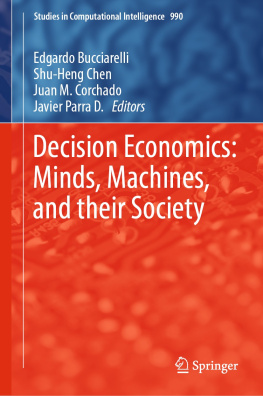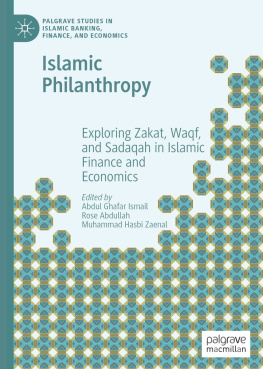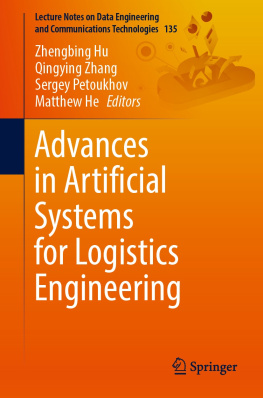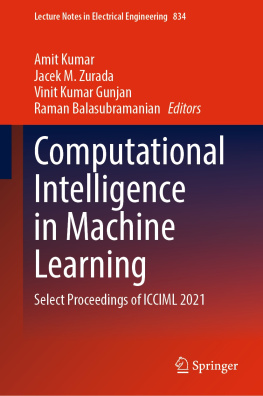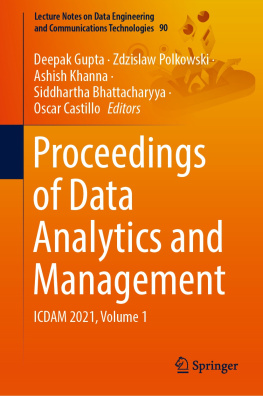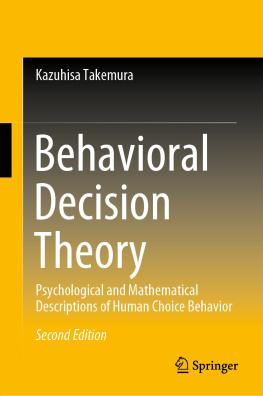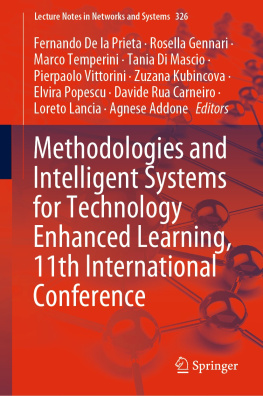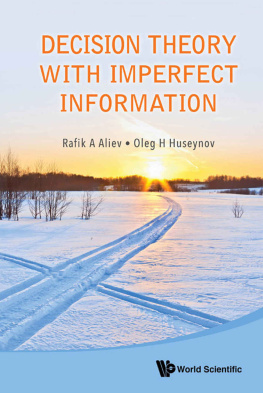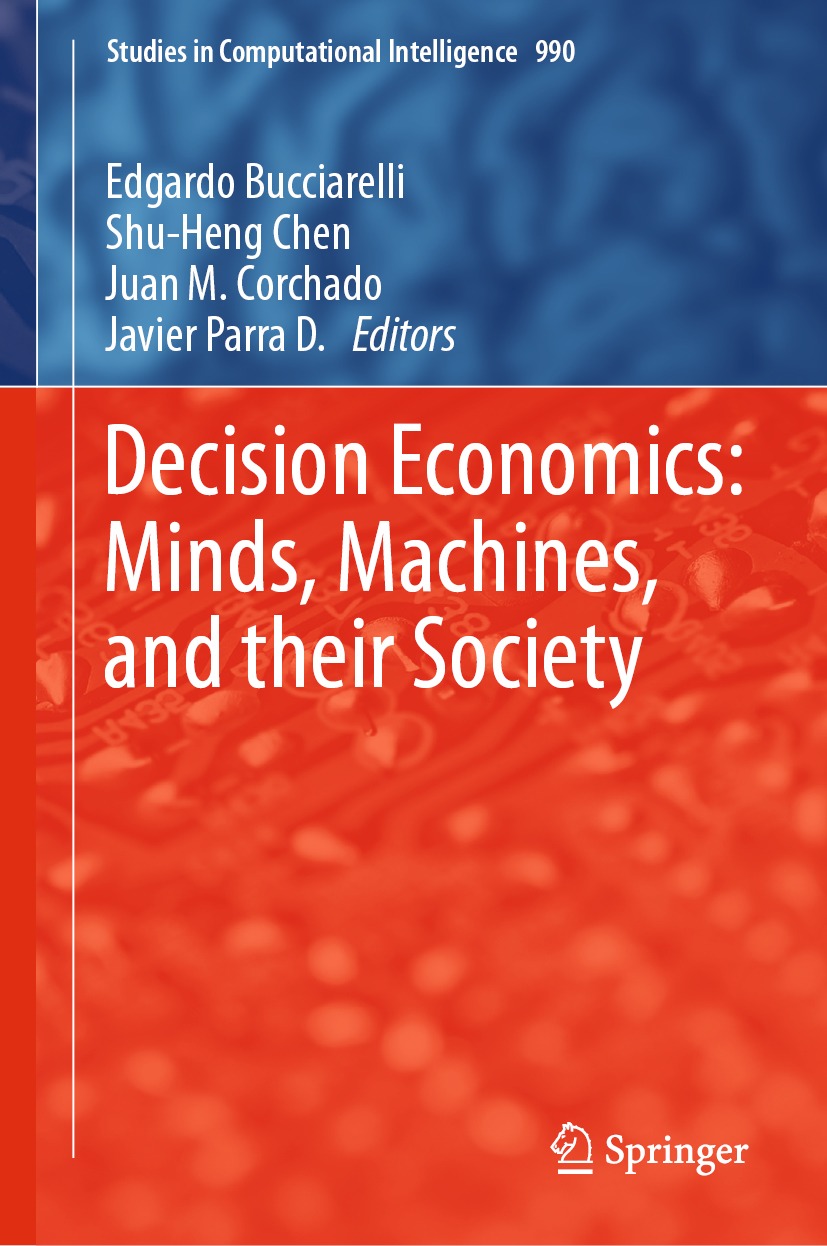Volume 990
Studies in Computational Intelligence
Series Editor
Janusz Kacprzyk
Polish Academy of Sciences, Warsaw, Poland
The series Studies in Computational Intelligence (SCI) publishes new developments and advances in the various areas of computational intelligencequickly and with a high quality. The intent is to cover the theory, applications, and design methods of computational intelligence, as embedded in the fields of engineering, computer science, physics and life sciences, as well as the methodologies behind them. The series contains monographs, lecture notes and edited volumes in computational intelligence spanning the areas of neural networks, connectionist systems, genetic algorithms, evolutionary computation, artificial intelligence, cellular automata, self-organizing systems, soft computing, fuzzy systems, and hybrid intelligent systems. Of particular value to both the contributors and the readership are the short publication timeframe and the world-wide distribution, which enable both wide and rapid dissemination of research output.
Indexed by SCOPUS, DBLP, WTI Frankfurt eG, zbMATH, SCImago.
All books published in the series are submitted for consideration in Web of Science.
More information about this series at http://www.springer.com/series/7092
Editors
Edgardo Bucciarelli , Shu-Heng Chen , Juan M. Corchado and Javier Parra D.
Decision Economics: Minds, Machines, and their Society
1st ed. 2021

Logo of the publisher
Editors
Edgardo Bucciarelli
Department of PPEQS, Section of Economics and Quantitative Methods, University of Chieti-Pescara, Pescara, Pescara, Italy
Shu-Heng Chen
Department of Economics, National Chengchi University, Taipei, Taiwan
Juan M. Corchado
AIR Institute - Deep Tech Lab, University of Valladolid, Valladolid, Spain
Javier Parra D.
Department of Business and Economics Adminstration, University of Salamanca, Salamanca, Spain
ISSN 1860-949X e-ISSN 1860-9503
Studies in Computational Intelligence
ISBN 978-3-030-75582-9 e-ISBN 978-3-030-75583-6
https://doi.org/10.1007/978-3-030-75583-6
The Editor(s) (if applicable) and The Author(s), under exclusive license to Springer Nature Switzerland AG 2021
This work is subject to copyright. All rights are solely and exclusively licensed by the Publisher, whether the whole or part of the material is concerned, specifically the rights of translation, reprinting, reuse of illustrations, recitation, broadcasting, reproduction on microfilms or in any other physical way, and transmission or information storage and retrieval, electronic adaptation, computer software, or by similar or dissimilar methodology now known or hereafter developed.
The use of general descriptive names, registered names, trademarks, service marks, etc. in this publication does not imply, even in the absence of a specific statement, that such names are exempt from the relevant protective laws and regulations and therefore free for general use.
The publisher, the authors and the editors are safe to assume that the advice and information in this book are believed to be true and accurate at the date of publication. Neither the publisher nor the authors or the editors give a warranty, expressed or implied, with respect to the material contained herein or for any errors or omissions that may have been made. The publisher remains neutral with regard to jurisdictional claims in published maps and institutional affiliations.
This Springer imprint is published by the registered company Springer Nature Switzerland AG
The registered company address is: Gewerbestrasse 11, 6330 Cham, Switzerland
In remembrance of Stefano Terzi, co-author of Chapter 12 of this book, esteemed colleague recently passed away. A tribute to his memory and legacy.
(Stefanos three co-authors, along with editors)
As dark misery settles down on us, and our refuges of lies fall in pieces one after one, the hearts of men, now at last serious, will turn to refuges of truth. The eternal stars shine out again, so soon as it is dark enough.
(Carlyle, 1843, p. 251)
DECON, Methodological Pluralism and the Consilience of Knowledge
When we commenced putting this special book together, we sought advice from a number of our colleagues, who are all experienced economists and scientists worldwide and, above all, have provided us with many constructive comments, insights, and reviews along the way. After all is said and done, we have ended up with thirty-eight contributing authors in this new edited volumeexcluding editorsand we would like to thank all of them very much because there is no doubt that their experience and dedication have given this book a much broader and more interesting perspective even this year.
In a time, indeed, when it is generally hard enough to keep abreast of novel and non-rhetorical literature in most research fields, the publication of peer review research papers, such as the collected papers in this special book, is something to be undertaken neither unadvisedly, nor too lightly, and nor wantonly. It is against this background of increased attention to research that the scientific initiative on Decision Economics (also known as DECON) has allowed the emergence of a novel discipline (see Bucciarelli, Chen, & Corchado 2020) as well as several explorations within and around economicsand their implicationsby distinguished and pioneering scholars, whilst professionally stepping up and undertaking quite a few tasks and work streams that were not envisaged at the start, in 2015, when DECON was conceived. In this regard, the persistent positive reinforcement received over the past five years largely helped and still helps to overcome that certain, specious distaste whichregrettably and, we believe, largely driven by other considerationssome of us still feel for special book productions and brought this volume, too, to the point of no return. It is true that some exploratory papers might appear among an unconscionably awkward selection of publications for anyone wanting to follow them up with an established logical or metalogical interpretation. However, it is equally true that it is a question of contextualising them within a novel disciplineDecision Economics, preciselywith the ambition of sharing advancements, ideas, and experiences in different research areas, encompassing several interdisciplinary topics while seeking to intercept key dynamics that will reshape the very near future of research in economics and, perhaps, are already reshaping it in the present-day.
It appears, furthermore, that the main benefits and characteristics perceived by dozens of authorsabout two hundred authors have seen their works published with DECON in the past five years, first, as a special session originally scheduled as part of the annual DCAI meeting to help bridge the gap, where cognitive sciences meet economics, then as an autonomous conferencewere the encouragement to critically analyse their working papers during the strict peer-reviewing process, and to generate and propose new or novel ideas in respect of science achievements and scientific conceptions, first of all mathematical in nature or, in any case, analytical, cognitive, computational, evolutionary, and experimental. Consistent with what we have been supporting for some time, among other issues, economic theory, game theory, and, inter alia, mathematical statistics are all increasingly becoming algorithmic sciences (see Velupillai 2009; see also Gcs et al. 2001; and Nisan et al. 2007). This awareness allows fostering the proposition of new ideas and new methodological approaches in the same breatha kind of moral duty for a scientific community worthy of its nameand facilitating the emergence of new possible solutions to long-standing and unresolved problems in science, management, policy-making, and ordinary life.

